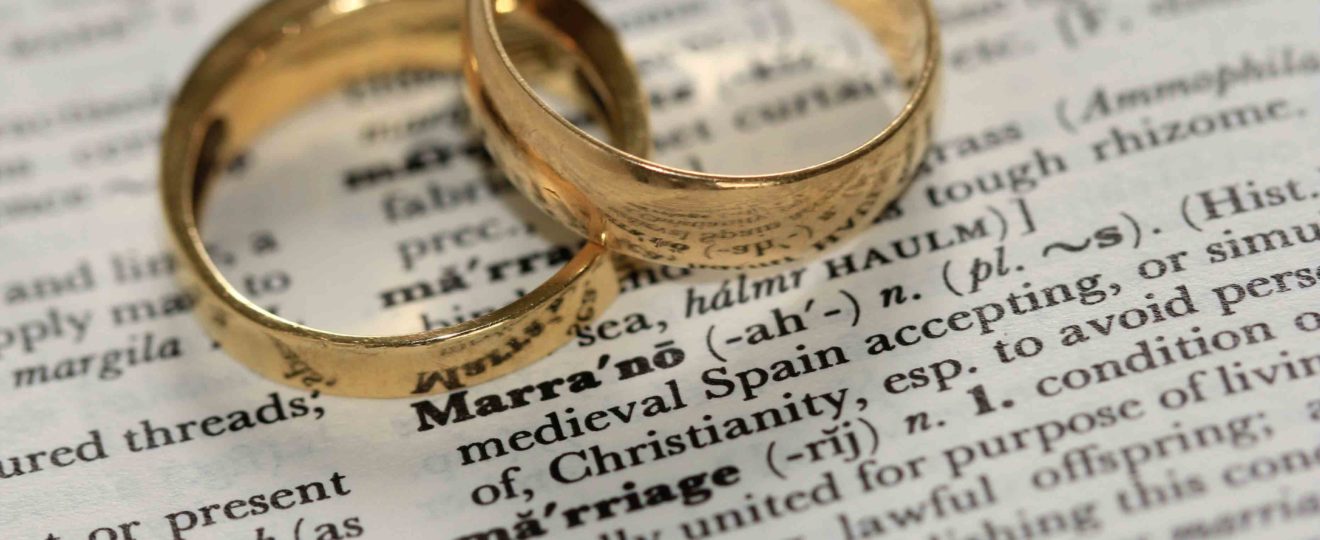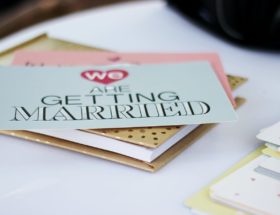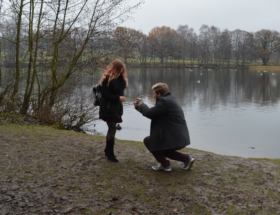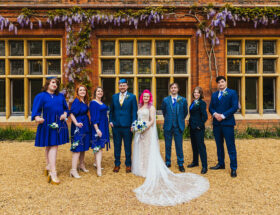There is no need for you to be legally married before a celebrant led ceremony, nor do you need to intend on getting legally married afterwards. A celebrant led ceremony will be a commitment of your love, a symbolic and beautiful moment that reflects your partnership regardless of if it is legally binding – and a celebrant ceremony will likely encompass your love and emotions far better than the few legal words needed to get married will do.
It is common that couples who have a celebrant led ceremony will make their marriage legal too, either on the same day or a few days before or after the ceremony. A celebrant may not be able to lead a wedding ceremony that is legally binding (unless a registrar is present too), but that doesn’t mean we can’t help you make that happen! In this blog post I’ll go through the main steps needed for you and your partner to become legally married.
Where you can legally get married?
To be legally married the wedding needs to take place in one of three venues: register offices, premises such as castles or manor houses that have been approved by the local authority, or churches and other buildings registered as a place of worship.
Whatever the venue, it must be a permanent structure with a roof, and often only places frequently open to the public will get approved a wedding license. This means that usually fully outdoor weddings, such as on a hilltop, in a forest or on a beach, or in a more private place such as a family residence or an unusual venue without a license, cannot be legally binding and this is where a celebrant led ceremony can come in instead. If you wish for your ceremony to be legally binding, you must therefore be sure the venue is suitable for that.
Giving notice
Once you have decided on your venue, you need to give a notice of marriage. This is a legal statement signed at your local register office saying you intend to get married or form a civil partnership. The notice must be given at least 29 days before your ceremony, and you can give notice up to a year before as long as the legal ceremony is held within the 12 months from when the notice was signed.
For the duration between you giving notice and the ceremony being held, the notice is published and held on record for anyone to object to the marriage before the ceremony should they know of any reason why you cannot legally marry. This is a stand-in for the classic “speak now or forever hold your peace” part of a ceremony.
When giving notice you’ll likely need paperwork to prove your name, age, nationality and address, so ID such as passports and birth certificates will need to be taken with you to the register office when you give notice.
Fees for a legal marriage
At the time of writing this blog post the fee to give notice at a register office was £35 per person if you are both British citizens. This fee may rise to £47 if either of you are of another nationality. The wedding certificate after the ceremony is finished will usually be £11, and can cost more if certain postage or other requirements are necessary.
The biggest fee will be the cost of the registrar, which will vary based on the where the ceremony is to be held and the type of ceremony you choose to have. Generally a ceremony at the register office itself will be cheaper than one out at a licensed venue, which makes for a difference of about £120 from the current fees listed on the Nottinghamshire Celebrate website. In terms of the ceremonies offered there’s an enhanced ceremony, a standard ceremony and a basic statutory ceremony. In Nottinghamshire these range from £400-530 for an enhanced ceremony at a licensed venue, to £150 for a standard ceremony and £46 for just the basic legal statutory ceremony.
An enhanced ceremony offers as close as possible to what a celebrant ceremony can give you, with non-religious music, readings, additional vows, and unity symbols (which I go into more on my About page) being allowed as part of the service. A standard ceremony gives you a ring exchange, music choices for entering, signing the register and exiting, but not a lot else such as readings or symbolic elements. And finally a statutory ceremony is only open to the couple and their two witnesses, may include a ring exchange but no other extras such as music or readings.
All ceremonies include the declaratory and contracting words, which are what is needed for a ceremony to be legal.
Declaratory and contracting words
These are the only lines that need to be spoken for a wedding ceremony to be legal in the UK. Declaratory words cover your freedom to legally marry, and contracting words state that you take each other as your legal husband/wife. There are three options for each, listed below.
Declaratory:
- “I do solemnly declare that I know not of any lawful impediment why I [name], may not be joined in matrimony to [partner’s name].”
- “I declare that I know of no legal reason why I [name] may not be joined in marriage to [partner’s name].”
- Replying “I am” to the question: “Are you, [name] free lawfully to marry [partner’s name]?”
Contracting:
- “I call upon these persons here present to witness that I [name] do take thee [partner’s name] to be my lawfully wedded husband/wife.”
- “I [name] take you [partner’s name] to be my weddings husband/wife”.
- “I [name] take thee [partner’s name] to be my weddings husband/wife”.
Once the words have been spoken, you can choose to exchange rings, though this is not necessary for the wedding to be legal.
Signing the register

The final piece needed to make the marriage legal is the signing of the register. This must be done by the couple, their two witnesses, and the registrar or person legally marrying the couple. If you choose to have a celebrant led ceremony but want to be legally married at the end of it, you can have a registrar present as well who will be able to sign the register if the ceremony is in a licensed venue and you have spoken the declaratory and contracting words during the ceremony. In this case both the registrar and the celebrant will sign the register.
Any questions?
Hopefully this has helped you better understand what is needed to get legally married in England and Wales. As a celebrant I do not require you to have already gotten legally married before I hold your wedding, nor do you ever need to get legally married afterwards if you just wish to have the symbolic and meaningful ceremony I or any other celebrant could create for you.
There’s plenty of other resources online to help you better understand what you need to know, such as from Citizens Advice or the Government website. If you have any further questions or if you need help with getting legally married alongside a celebrant led wedding, please do not hesitate to contact me!





